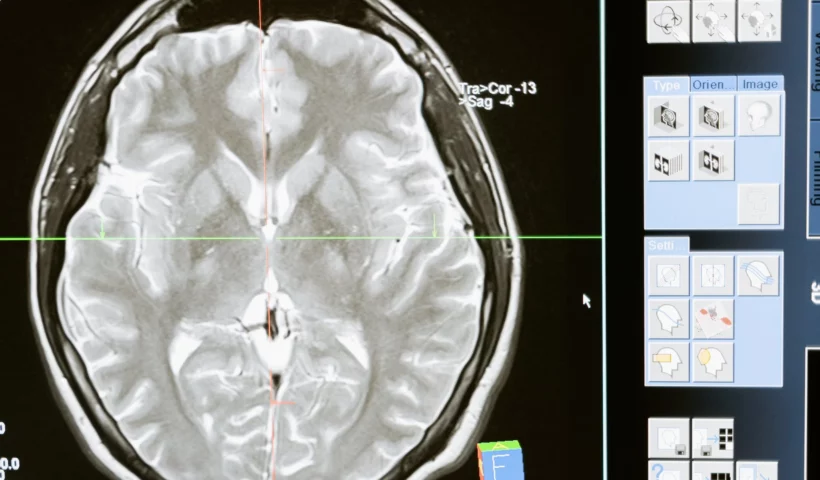The tragic loss of the Titan and its passengers has been rippling through the news. The wreckage of the submersible was recovered five days after its initial departure, and the debris suggests the vessel suffered a catastrophic implosion. Concerns over the safety of the Titan have been raised over the past few years, and ultimately, several ethical failures resulted in the loss of the lives of its passengers. This event is unfortunately reminiscent of the Challenger disaster, and showcases how ethical considerations in engineering must be made at every level of a company.
View More The Loss of Titan and Remembering ChallengerCategory: Weekly News Profile
Burners in Hot Water: The Struggle Over Household Gas Appliances
Recent studies link gas appliances to severe adverse personal health and climate effects, with many consumers considering switching to electric or induction alternatives. However, others, including some politicians and industries, are resistant to legislation that would limit or ban gas stoves. New York announced that it will implement a gas stove ban in 2026, while the House of Representatives passed a bill prohibiting such bans on a federal level. This legislative back-and-forth will likely continue, and it parallels other attempts to transition away from fossil fuel technologies.
View More Burners in Hot Water: The Struggle Over Household Gas AppliancesClimate Change is Driving Canadian Wildfires and Smoky New York City Skies
When wildfires raging in Canada created dangerous air quality in the Northeastern United States, many conversations centered around the eerie smoke-filled haze lingering in cities like New York and Philadelphia. Although air quality is important to discuss, so, too, is the driving force behind the fires. With Canada on track for having its worst wildfire season in history, it is critical that the connection between wildfires and climate change remains clear.
View More Climate Change is Driving Canadian Wildfires and Smoky New York City SkiesStudy Announces Use of CAR T-Cell Therapy Against Solid Tumors
CAR T-cell therapy, a revolutionary treatment for blood cancers, genetically modifies T-cells using CRISPR to replace their receptors with specialized ones called CARs. These CAR T-cells target antigens on cancerous blood cells, triggering an immune response that enables the patient’s body to destroy cancer cells. Additionally, CRISPR is used to deactivate genes that hinder the therapy’s efficacy. However, CAR T-cell therapy has struggled to target solid tumors due to their heterogeneity. Recent research from MIT’s Koch Institute introduces a promising solution using amphile fluorescein isothiocyanate tagging (amph-FITC). By injecting tumors with amph-FITC tags and treating them with FITC-specific CAR T-cells, researchers achieved successful tagging and destruction of cancerous cells while minimizing impact on healthy tissue. This breakthrough, although not yet tested on humans, holds potential to effectively treat and cure various cancers if approved for clinical applications.
View More Study Announces Use of CAR T-Cell Therapy Against Solid TumorsHow Technology Affects Sleep Deprivation
In recent decades, insufficient sleep has become a more prevalent health concern. Due to new inventions in technology such as artificial light, the work day has gotten progressively longer and longer. Rather than supporting the body’s circadian rhythm, people rely on caffeine and melatonin to get through the day. College students in particular are at a much higher health risk of sleep deprivation, and new “wakefulness pills” are being abused in place of energy drinks and coffee. However, all of these aids to help relieve the effects of sleep deprivation do not actually target the root of the issue: getting adequate sleep.
View More How Technology Affects Sleep DeprivationNeuralink Gains First-In-Human Approval as BCIs Advance Rapidly
Elon Musk’s Neuralink has received FDA approval for first-in-human studies of their brain-computer interface implant. This approval comes after multiple controversies surrounding their preclinical treatment of animal subjects. BCI technology has several concerns, including invasive surgeries, adverse effects, and implant obsolescence. While the general public will not have access to BCIs for enhancement any time soon, it is crucial to consider the impact and regulation of this technology for patients that it could greatly benefit.
View More Neuralink Gains First-In-Human Approval as BCIs Advance RapidlyThe Implications of a Social Media Ban in Montana
Montana made headlines on Wednesday for being the first state in the nation to ban the social media app, TikTok. U.S. officials claim the application is a national security concern, while critics call the ban a violation of the First Amendment. Challenges to the new law may take place before it goes into effect in January, but its ability to gather enough support to pass could point to a new precedent being set.
View More The Implications of a Social Media Ban in MontanaThe Influence of Climate Change on the Pros and Cons of California’s Wet Season
Already in 2023 California has experienced extreme rainfall that has significantly reduced the drought conditions in the state. This wet winter has also led to superblooms, a phenomenon in which wildflowers are able to cover vast fields due to the ground retaining moisture from the excessive rainfall. However, this level of rainfall has also led to extensive damage and flooding, and even the beautiful wildflowers pose an increased risk of wildfires once they dry out. Both these benefits and long term issues can be traced back to climate change, with the warming of the planet leading to a significant increase in the risk of a California megaflood.
View More The Influence of Climate Change on the Pros and Cons of California’s Wet SeasonAbortion Pill Rulings Leave the FDA in Political Crossfire
This month, FDA approval of mifepristone, a key drug used for medication abortion, has been the subject of several federal rulings. Representatives of the FDA and private drug companies have spoken out against the motion to overrule FDA approval, citing extensive safety data. Depending on the decision from the Supreme Court, these rulings could set a new precedent allowing federal courts to overturn FDA approval.
View More Abortion Pill Rulings Leave the FDA in Political CrossfireCiao-GPT
In today’s world we are surrounded by the myriad applications of artificial intelligence (AI). Though it is capable of some incredible things, it can also be very dangerous without regulation. Leading AI developers have published an open letter warning against the continued development of powerful AI, but will the world heed this warning?
View More Ciao-GPT









